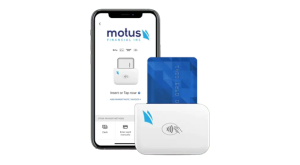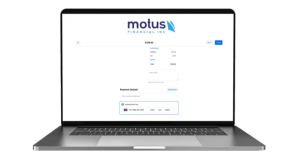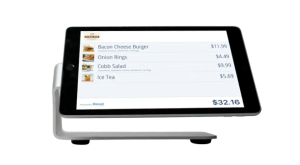How Secure Is E-commerce Payment Processing? What You Need to Know
As online shopping continues to grow, so does the risk of cyber threats. Every time a customer enters card information on your website, both trust and money are on the line. If you’re running an online store or planning to start one, understanding the safety of e-commerce payment systems isn’t just a smart move—it’s essential.
This blog breaks down what goes on behind the scenes during a payment transaction, what security measures are in place, and what you can do to protect your customers and your business. If you’ve ever questioned how safe your checkout really is, keep reading.
Why Payment Security Matters in E-commerce
Every second, thousands of digital transactions happen across online stores. With that convenience comes a major responsibility: keeping sensitive information out of the wrong hands.
When a customer shares their credit card number, expiration date, and CVV, they expect it to stay safe. A breach doesn’t just mean financial loss—it could permanently damage your brand reputation.
Did you know?
-
62% of consumers say they would stop shopping with a brand after a data breach.
-
43% of cyberattacks target small businesses.
-
Payment fraud losses hit $38 billion globally in 2023.
Your checkout process isn’t just about convenience—it’s about security, trust, and long-term business survival.
What Happens During an E-commerce Payment Transaction?
To understand the security side, it helps to first grasp how an online payment works. Here’s what typically happens in a matter of seconds:
-
The customer inputs payment info.
-
Data is encrypted and sent to the payment processor.
-
The processor communicates with the customer’s bank.
-
The bank either approves or declines the transaction.
-
Approval is returned, and the order is confirmed.
Each of these steps offers a chance for something to go wrong—if the right protections aren’t in place. That’s where eCommerce payment processing services come into play.
Key Security Measures That Protect E-commerce Payments
If you’re wondering how secure your system really is, these are the top features to look for or implement:
1. Encryption
Before payment details are even sent over the internet, encryption tools turn that data into unreadable code. Only the intended receiver (the payment processor) can unlock it. If someone intercepts the message, they won’t be able to use it.
2. SSL Certificates
SSL (Secure Sockets Layer) ensures your website has a secure connection between the server and browser. Ever seen that little padlock icon in your URL bar? That’s SSL in action.
3. PCI-DSS Compliance
The Payment Card Industry Data Security Standard (PCI-DSS) is a must. It outlines strict security practices for businesses handling credit card information. Many e-commerce payment processing services include built-in PCI compliance.
4. Tokenization
Instead of storing actual card numbers, tokenisation replaces them with random strings of characters. Even if a hacker gets the data, it’s useless without the original token map, held securely by the processor.
5. 3D Secure Authentication
This extra step (like Verified by Visa or Mastercard SecureCode) adds a layer where customers must confirm their identity via a one-time password or biometric check.
Read More: How to Integrate Ecommerce Payment Processing Services Seamlessly
Common Threats in E-commerce Payment Processing
Understanding the risks helps you prepare and respond better. Here are the most common threats businesses face today:
-
Phishing Attacks: Fake emails or sites are designed to trick customers into entering payment data.
-
Man-in-the-Middle Attacks: Hackers intercept transactions between the user and the website.
-
SQL Injections: Code that hackers use to exploit database vulnerabilities.
-
Chargeback Fraud: Customers dispute valid transactions to get free products.
-
Credential Stuffing: Attackers use leaked login details from other websites to access customer accounts.
How Ecommerce Payment Processing Services Help Safeguard Your Store

Not every business owner is a cybersecurity expert. That’s why many rely on providers like Motus Financial, who handle the technical side of online transactions.
Here’s how eCommerce payment processing services help you stay protected:
-
Automatic Fraud Detection: Using AI-free machine systems and rule-based monitoring.
-
Real-Time Alerts: Get notified immediately about suspicious transactions.
-
Secure APIs: So your checkout system communicates securely with payment networks.
-
No Data Storage: Avoids storing sensitive data on your servers.
-
Support for Secure Gateways: Integration with trusted platforms like Authorize.net, Stripe, and PayPal.
With these services, you’re not just accepting payments—you’re accepting them securely.
Signs Your Current Payment System Might Be Unsafe
Not sure if your payment process is secure enough? Here are some warning signs:
-
Customers have reported fraud after shopping on your site
-
You’re storing raw credit card data
-
Your website doesn’t use HTTPS (no padlock icon)
-
You’re unaware of your PCI-DSS status
-
You don’t offer two-step authentication during checkout
If even one of these applies, it’s time to reassess your system.
Tips to Boost Security on Your End
While good eCommerce payment processing services do the heavy lifting, there are still things you can control:
-
Use strong admin passwords and change them regularly
-
Update your site plugins and software often
-
Limit access to your payment systems
-
Train your team on spotting phishing and scams
-
Offer secure guest checkout to avoid storing customer info
-
Back up your site regularly
-
Display security badges to earn customer trust
Remember, security is a shared responsibility.
The Real Cost of a Data Breach
Let’s talk dollars. The average cost of a data breach for small businesses ranges between $120,000–$250,000. That includes lost revenue, legal fees, compliance fines, and reputation recovery.
But the bigger cost? Lost trust.
In a digital world, reputation travels fast. One security slip could lead to thousands of customers abandoning their carts—or worse, never coming back.
How Motus Financial Helps You Stay Protected
At Motus Financial, our e-commerce payment processing services are designed with your security in mind. We use time-tested tools that not only process payments smoothly but also keep your customers’ data protected.
From fraud prevention to PCI-compliant gateways, we handle the complexity so you can focus on running your business.
Whether you’re starting a small online store or scaling a national e-commerce brand, our team is here to help you manage the risks and grow with confidence.
🛡️ Want to protect your online payments the smart way? Start a secure partnership with us today and experience the Motus difference.
Final Thoughts: Is E-commerce Payment Processing Secure?
Yes—but only if you choose the right system and stay proactive.
E-commerce has revolutionized the way we shop, but it’s also changed the way fraud happens. Today, a secure transaction isn’t just about taking money—it’s about safeguarding identities, maintaining customer trust, and running a business that can survive long term.
If your current system doesn’t give you peace of mind, or if you’re unsure whether you’re protected, now’s the time to act.
Your customers are counting on you. And with Motus Financial, you’re never handling payment security alone.
🔒 Ready to upgrade your ecommerce payment safety? Let’s secure your transactions.
Need a reliable partner for your e-commerce payment processing services? Motus Financial is here to support your online growth—safely, efficiently, and with integrity.








 Our POS systems are designed to streamline in-store transactions. With features like inventory management, sales reporting, and customer tracking, our POS solutions help you run your business more efficiently. Our terminals are compatible with various payment methods, including chip cards, contactless payments, and mobile wallets.
Our POS systems are designed to streamline in-store transactions. With features like inventory management, sales reporting, and customer tracking, our POS solutions help you run your business more efficiently. Our terminals are compatible with various payment methods, including chip cards, contactless payments, and mobile wallets.
